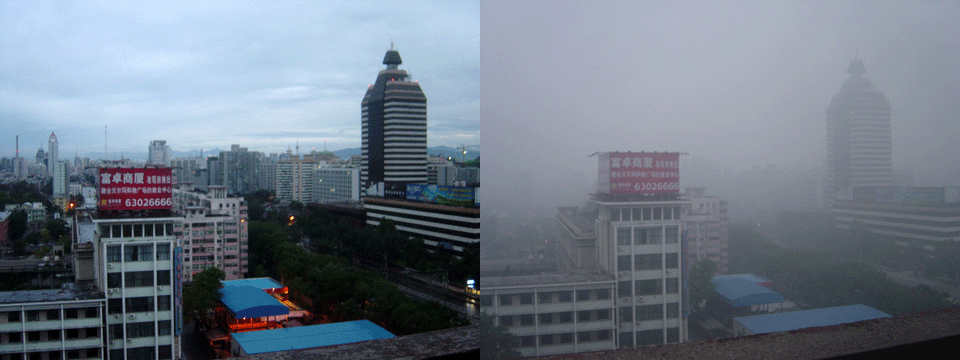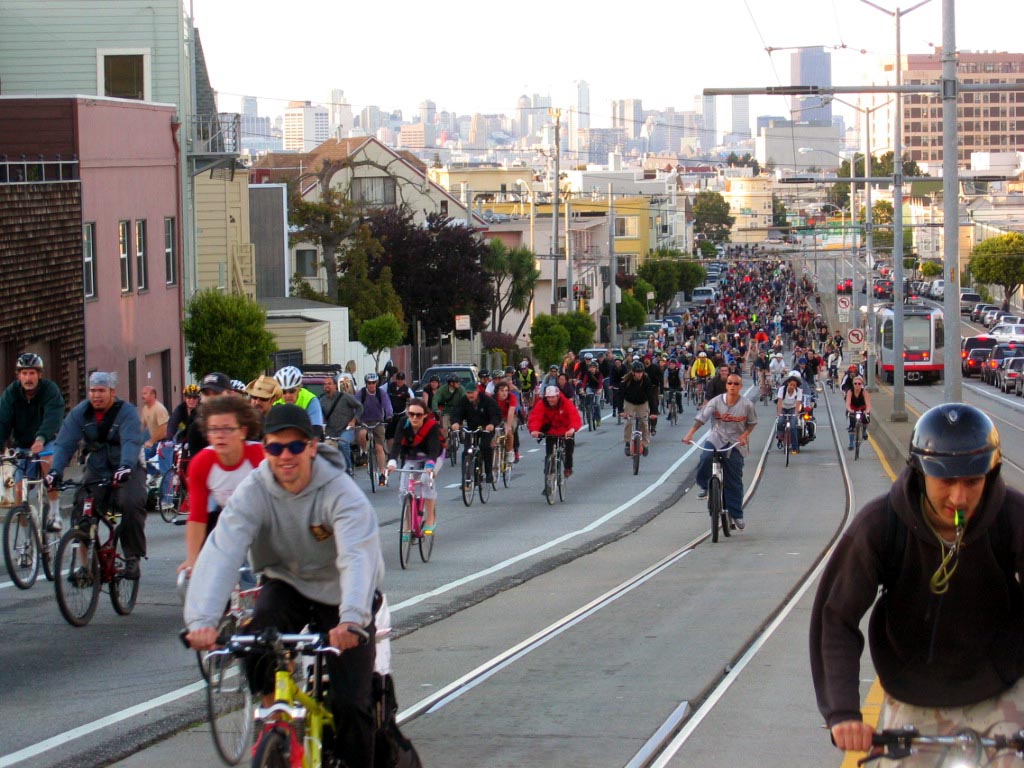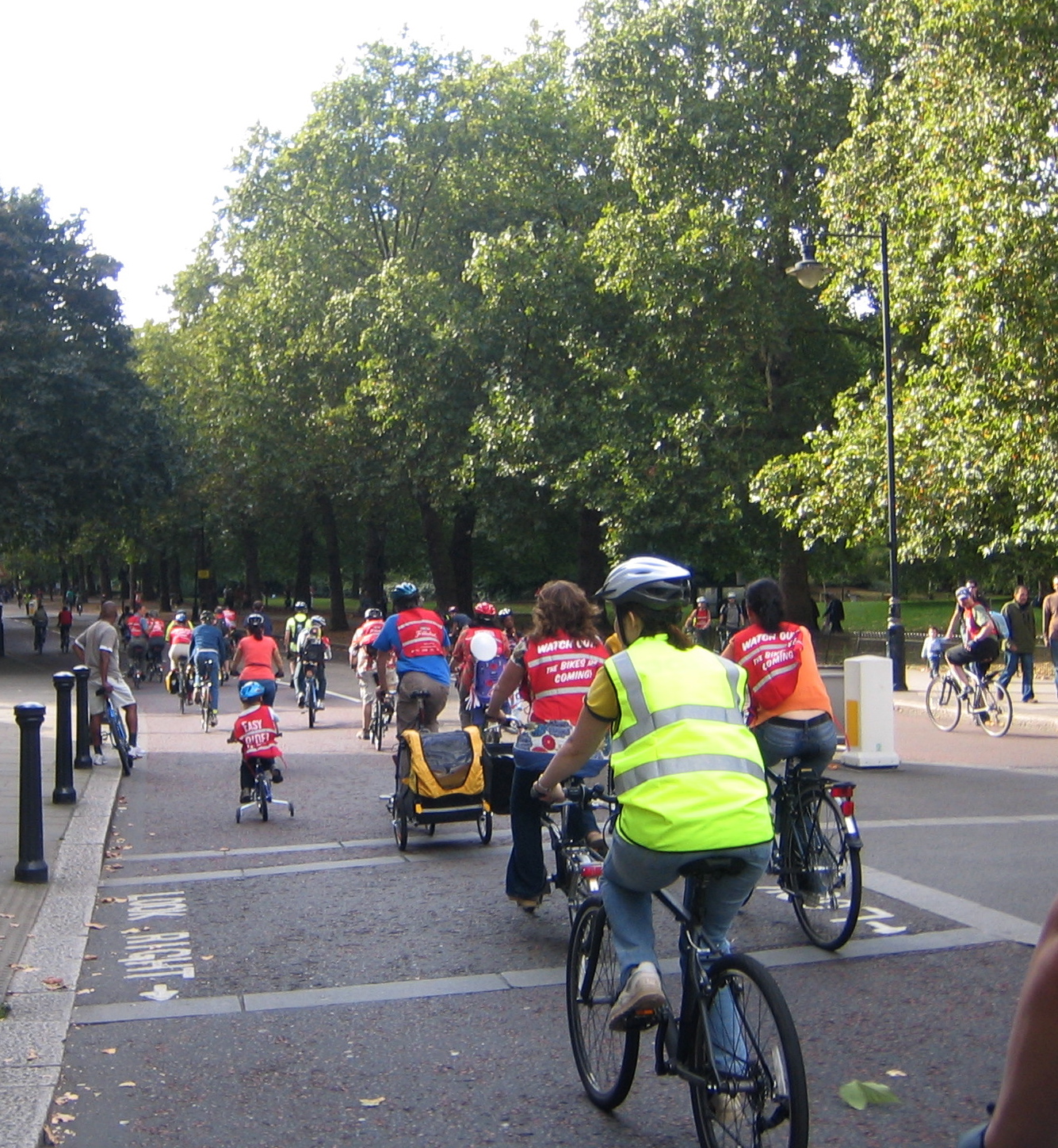|
No Car Day
In 2007, China launched thGreen Transport and Healthweek campaign to help residents understand the importance of environmental protection and be mindful about saving energy. The campaign ended with a No Car Day Saturday. This Chinese national urban transport campaign was implemented by the Ministry of Construction. During the week of September 22, walking, biking, public transportation, and carpooling are encouraged. On No Car Day they will have special 'green zones' in hundreds of cities. These normally vehicle congested areas will be open only to pedestrians, bicycles, and buses from 7am to 7pm. No Car Day's main objective is to promote public transportation. Public transportation helps to conserve energy and have lower emission because the number of vehicles has been reduced. No Car Day was originally started in preparation for the 2008 Summer Olympic Games that were being held in Beijing. It is estimated that the 2007 campaign saved 33 million liters of gasoline and cut ... [...More Info...] [...Related Items...] OR: [Wikipedia] [Google] [Baidu] |
China
China, officially the People's Republic of China (PRC), is a country in East Asia. It is the world's most populous country, with a population exceeding 1.4 billion, slightly ahead of India. China spans the equivalent of five time zones and borders fourteen countries by land, the most of any country in the world, tied with Russia. Covering an area of approximately , it is the world's third largest country by total land area. The country consists of 22 provinces, five autonomous regions, four municipalities, and two Special Administrative Regions (Hong Kong and Macau). The national capital is Beijing, and the most populous city and financial center is Shanghai. Modern Chinese trace their origins to a cradle of civilization in the fertile basin of the Yellow River in the North China Plain. The semi-legendary Xia dynasty in the 21st century BCE and the well-attested Shang and Zhou dynasties developed a bureaucratic political system to serve hereditary monarchies, or dyna ... [...More Info...] [...Related Items...] OR: [Wikipedia] [Google] [Baidu] |
Beijing
} Beijing ( ; ; ), alternatively romanized as Peking ( ), is the capital of the People's Republic of China. It is the center of power and development of the country. Beijing is the world's most populous national capital city, with over 21 million residents. It has an administrative area of , the third in the country after Guangzhou and Shanghai. It is located in Northern China, and is governed as a municipality under the direct administration of the State Council with 16 urban, suburban, and rural districts.Figures based on 2006 statistics published in 2007 National Statistical Yearbook of China and available online at archive. Retrieved 21 April 2009. Beijing is mostly surrounded by Hebei Province with the exception of neighboring Tianjin to the southeast; together, the three divisions form the Jingjinji megalopolis and the national capital region of China. Beijing is a global city and one of the world's leading centres for culture, diplomacy, politics, finance, busi ... [...More Info...] [...Related Items...] OR: [Wikipedia] [Google] [Baidu] |
Car-free Movement
The car-free movement is a broad, informal, emergent network of individuals and organizations, including social activists, urban planners, transportation engineers, environmentalists and others, brought together by a shared belief that large and/or high-speed motorized vehicles (cars, trucks, tractor units, motorcycles, etc.) are too dominant in most modern cities. The goal of the movement is to create places where motorized vehicle use is greatly reduced or eliminated, by converting road and parking space to other public uses and rebuilding compact urban environments where most destinations are within easy reach by other means, including walking, cycling, public transport, personal transporters, and mobility as a service. Context Before the twentieth century, cities and towns were normally compact, containing narrow streets busy with human activity. In the early twentieth century, many of these settlements were adapted to accommodate the car with wider roads, more car parki ... [...More Info...] [...Related Items...] OR: [Wikipedia] [Google] [Baidu] |
Unplug America
The "Unplug America - Give Mother Earth a Rest Day" tradition was started in 1992 by Indigenous Peoples and is observed on October 13 each year. It is a day to live simply and off grid, enjoy the nature around you and breathe fresh air. Unplug your TV, computers... and take a walk. The campaign focuses primarily on America because of massively high per capita consumption in the US. In the early 1990s, the UNPLUG from Mother Earth Campaign was initiated by three Indigenous-based organizations. These organizations and leaders were Tom B.K. Goldtooth, Indigenous Environmental Network (IEN); Winona LaDuke, Indigenous Women's Network (IWN)and Christopher Peters, 7th Generation Fund (SGF). Nilak Butler (deceased), member of IEN and IWN also assisted in the development of this UNPLUG Campaign during the 1990s in her capacity as an Indigenous staff organizer within the Indigenous Nuclear Free Campaign of U.S. Greenpeace. Periodically throughout the 1990s and 2000s the UNPLUG from Mother ... [...More Info...] [...Related Items...] OR: [Wikipedia] [Google] [Baidu] |
London Freewheel
The London Freewheel, originally known for sponsorship reasons as the 'Hovis London Freewheel', was developed by the Mayor of London and Transport for London (TfL) to encourage and increase cycling participation, and promote cycling as a form of transport within London. The event was launched at City Hall on 26 June 2007 by the Mayor, Ken Livingstone, Konnie Huq and Tim Dewey, Marketing Director for the event's sponsor Hovis. Hovis contributed £300,000 out of the total £600,000 raised in commercial sponsorship and support. History Origins Cycling in London grew by 83% from 2000 to 2007. It was estimated that 40% of Londoners have access to a bike, but only five per cent use one regularly. The Mayor of London and Transport for London (TfL) increased investment in cycling from £5.5 million in 2000 to £36 million in 2007/08. This money was spent on improved cycle parking facilities, education and training, events and cycle promotion. 500 km of the London Cycle Network Plus ... [...More Info...] [...Related Items...] OR: [Wikipedia] [Google] [Baidu] |



